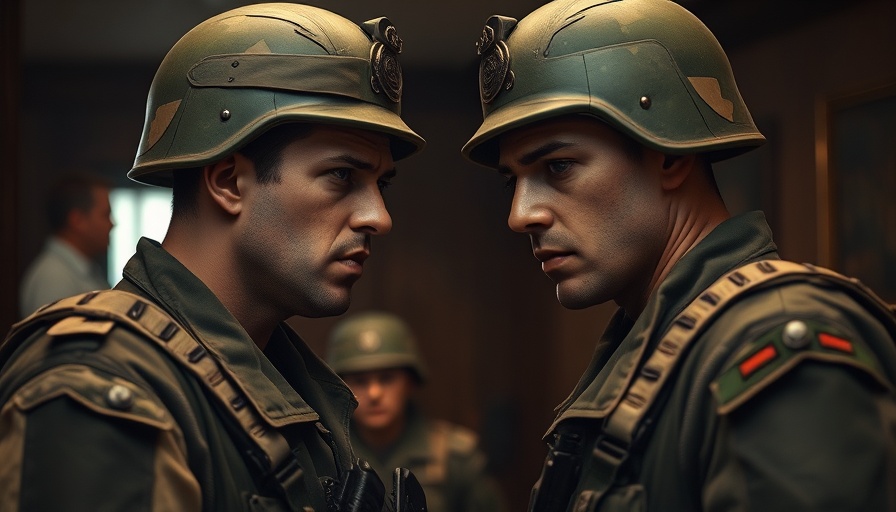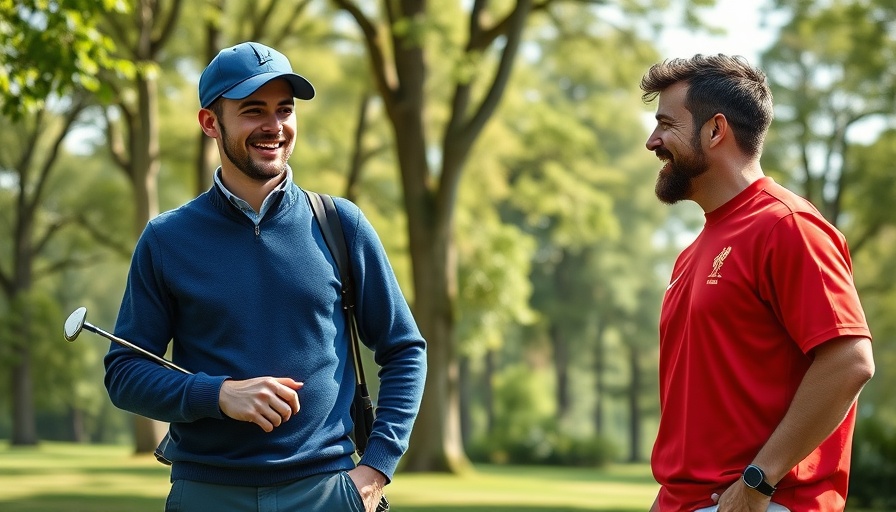
Unearthing the Harsh Realities of War: A Glimpse into 'Warfare'
The recent film Warfare has drawn much attention, not only because it is the latest work of acclaimed director Alex Garland but also due to its gripping portrayal of a real-life event amidst the Iraq War. Co-directed by Ray Mendoza, who himself lived through the harrowing experiences depicted, this movie embodies every nuance of military life and carries the weight of genuine trauma.
Why 'Warfare' is Not Just Another War Movie
Many war films often dramatize events for cinematic effect, but Warfare strives for authenticity. This commitment stems from Mendoza's involvement as a former Navy SEAL, making the immersive storytelling rooted in actual events from his 2006 mission in Ramadi. The film’s dedication to Elliott, a fellow Navy SEAL who suffered a traumatic brain injury during the same mission, underscores its personal impact. For those familiar with the struggles of veterans in discussing their experiences, seeing their stories manifested in film fosters an understanding that transcends the screen.
The Collaborative Journey: Garland and Mendoza
Mendoza's journey into filmmaking started when he served as a military advisor for Garland’s previous film, Civil War. The authenticity he provided caught Garland's eye, leading them to create Warfare, where they aim to capture the sheer adrenaline and chaos of military operations in real-time.
This collaboration allowed them to craft not just a film, but a visceral experience that invites viewers to grapple with the true cost of warfare—not merely through action-packed scenes but also by showcasing the emotional undercurrents of camaraderie and loss within extreme situations.
Lessons from Combat: What We Can Learn
For the audience, particularly digital nomads who often juggle careers, health, and travel, Warfare serves as a stern reminder of the importance of mental health and connection. Viewing the film can evoke an understanding of how to deal with anxiety and the chaotic feelings that stem from extreme scenarios. Just as soldiers rely on camaraderie and support, so too can we as nomads benefit from community and shared experiences.
Implications for Understanding Health on the Road
As you navigate the challenges of remote work and travel, embodying some of the lessons from 'Warfare' can inspire stronger connections to your well-being. Prioritizing mental health, finding support systems, and fostering connections can mirror the bonds seen among troops. This film could provoke reflections on how we navigate our own daily battles while maintaining our mental and physical health.
In conclusion, Warfare is not just a film about war but a layered exploration of trauma, healing, and the human experience. As you take on your digital nomad lifestyle, remember that fostering community and understanding emotional challenges can enhance not just your working life but your overall well-being.
Act Now to Enhance Your Well-Being
Engage with your surroundings and build lasting connections as you travel. This can vastly improve not just your work productivity but also your health on the road. Whether it's through joining local communities, attending events, or simply reaching out to others in the field, every connection counts toward a holistic lifestyle.
 Add Row
Add Row  Add
Add 




Write A Comment